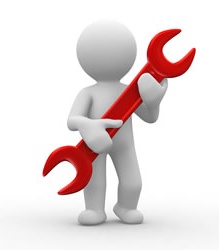Preventive Maintenance or Deferred Maintenance? That is the question
- Post By: Lauren Hilton
- Date:
- Category: Blog
Deciding on whether to dedicate dollars on a Preventive Maintenance Plan is a challenge many Property and Facility Managers face each year at budget time. Many are feeling the pressure to reduce expense and develop new plans to save. Some may choose the Deferred Maintenance route to accomplish this but what does Deferred Maintenance for your mechanical equipment really mean?
Deferred maintenance is when maintenance does not get performed for an extended period of time, or outside of the recommended manufacturer’s guidelines.
On a spreadsheet this could show as “saving money” but let’s look at what costs choosing this plan could have.
The results of delaying maintenance can range from simple component failure to earlier than normal total equipment failure. What is your risk if major equipment breaks down or systems fail? It is important to not only look at the estimated value of deferred maintenance but to also identify the liability it represents. Certain systems impact different areas of your building. Be mindful of the impact to contents and people residing in the areas that could be affected.
Balancing a budget that ensures funding to support regular maintenance and covers the backlog of deferred maintenance items can be difficult. Here are some tips to make an effective business case:
· Evaluate the current cost of recommended maintenance and compare it to the liability of deferring maintenance. Use historical data to estimate the long term cost versus the current period spend. This should be done for each piece of equipment in your facility as each one will have varying components that could fail and different possible life expectancy.
· Estimate the risk potential. As a result of deferring maintenance, could there be a hazard or liability to the company, building or tenants? Could revenue decline if the tenant or customer experience is not optimal? Identifying where the potential of risk could take place can help develop a plan of the least negative impact.
Deferred maintenance may seem to be an effective way to reduce spending, but make sure it is not actually a cost avoidance tactic. Incorporating an ongoing preventive maintenance program with a trusted provider is one of the most efficient and effective ways to reduce expenses. Your service partner provides expert analysis per piece of equipment and can help determine what type of maintenance plan would be best for your needs. If you have questions about your current plan or are interested in options, please call us, we are always ready to help and serve.